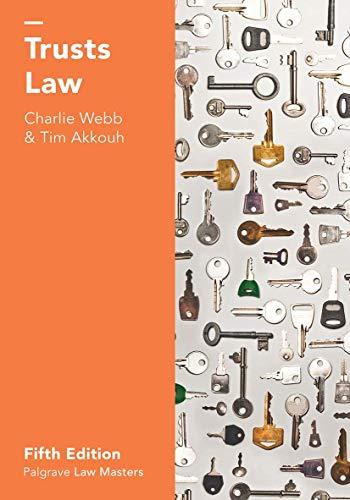Question
City of Grants Pass, Oregon v Gloria Johnson Facts of the case (brief overview) can use outside sources The city of Grants Pass in southern
City of Grants Pass, Oregon v Gloria Johnson
Facts of the case (brief overview) can use outside sources
The city of Grants Pass in southern Oregon has a population of approximately 38,000, and of that population, somewhere between 50 and 600 persons are unhoused. Whatever the exact number of unhoused persons, however, it exceeds the number of available shelter beds, requiring that at least some of them sleep on the streets or in parks. However, several provisions of the Grants Pass Municipal Code prohibit them from doing so, including an "anti-sleeping" ordinance, two "anti-camping" ordinances, a "park exclusion" ordinance, and a "park exclusion appeals" ordinance.
In September 2018, a three-judge panel of the U.S. Court of Appeals for the Ninth Circuit decided Martin v. City of Boise, holding that "the Eighth Amendment prohibits the imposition of criminal penalties for sitting, sleeping, or lying outside on public property for homeless individuals who cannot obtain shelter." While the Grants Pass Municipal Code provisions impose only civil penalties, they still can mature into criminal penalties.
A district court certified a class of plaintiffs of involuntarily unhoused persons living in Grants Pass and concluded that, based on the unavailability of shelter beds, the City's enforcement of its anti-camping and anti-sleeping ordinances violated the Cruel and Unusual Punishment Clause. A panel of the Ninth Circuit affirmed, and the Ninth Circuit denied rehearing en banc.
Legal Question
Does a city's enforcement of public camping against involuntarily homeless people violate the Eighth Amendment's protection against cruel and unusual punishment?
INSTRUCTIONS: your role is as the respondent, draft a rebuttal for this case noting possible positions the petitioner may argue.
Role: Respondent These attorneys will argue for the party who won in the lower court and who is defending the decision of the lower court in the U.S. Supreme Court.
Using this case, please help in creating a legal basis for your position (the respondent), and explain the application of the facts to the law, and request a decision based upon your argument. You should consider addressing the implications of the decision you are asking the Court to make. Use the opening to engage the Justices. This is an opportunity to make a first impression, so be sure to start strong and state your position and arguments clearly. Note- accurate use of the law and facts, including any precedents where relevant; analysis and effective rebuttal of key opposing arguments; and good handling of possible Justices' questions
But please focus on the rebuttal, noting your role is the respondent in this case: Rebuttal for Petitioner/Respondent.During the rebuttal you have an opportunity to rebut any significant arguments made by the opposing attorneys. In order to make a successful rebuttal you will need to ferret out logical flaws, and be very familiar with the possible opposing arguments of the other team.
Step by Step Solution
There are 3 Steps involved in it
Step: 1

Get Instant Access to Expert-Tailored Solutions
See step-by-step solutions with expert insights and AI powered tools for academic success
Step: 2

Step: 3

Ace Your Homework with AI
Get the answers you need in no time with our AI-driven, step-by-step assistance
Get Started


